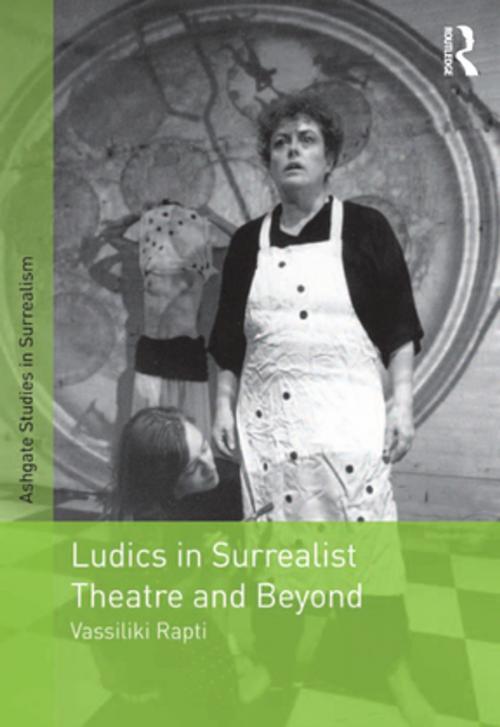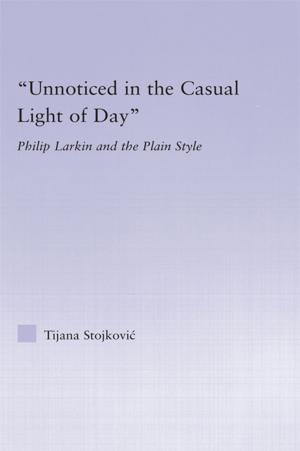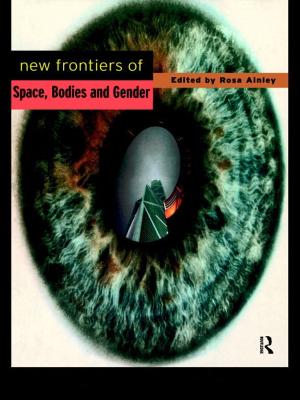| Author: | Vassiliki Rapti | ISBN: | 9781317103080 |
| Publisher: | Taylor and Francis | Publication: | May 13, 2016 |
| Imprint: | Routledge | Language: | English |
| Author: | Vassiliki Rapti |
| ISBN: | 9781317103080 |
| Publisher: | Taylor and Francis |
| Publication: | May 13, 2016 |
| Imprint: | Routledge |
| Language: | English |
Taking as its point of departure the complex question about whether Surrealist theatre exists, this book re-examines the much misunderstood artistic medium of theatre within Surrealism, especially when compared to poetry and painting. This study reconsiders Surrealist theatre specifically from the perspective of ludics-a poetics of play and games-an ideal approach to the Surrealists, whose games blur the boundaries between the 'playful' and the 'serious.' Vassiliki Rapti's aims are threefold: first, to demystify André Breton's controversial attitude toward theatre; second, to do justice to Surrealist theatre, by highlighting the unique character that derives from its inherent element of play; and finally, to trace the impact of Surrealist theatre in areas far beyond its generally acknowledged influence on the Theatre of the Absurd-an impact being felt even on the contemporary world stage. Beginning with the Surrealists' 'one-into-another' game and its illustration of Breton's ludic dramatic theory, Rapti then examines the traces of this kind of game in the works of a wide variety of Surrealist and Post-Surrealist playwrights and stage directors, from several different countries, and from the 1920s to the present: Roger Vitrac, Antonin Artaud, Günter Berghaus, Nanos Valaoritis, Robert Wilson, and Megan Terry.
Taking as its point of departure the complex question about whether Surrealist theatre exists, this book re-examines the much misunderstood artistic medium of theatre within Surrealism, especially when compared to poetry and painting. This study reconsiders Surrealist theatre specifically from the perspective of ludics-a poetics of play and games-an ideal approach to the Surrealists, whose games blur the boundaries between the 'playful' and the 'serious.' Vassiliki Rapti's aims are threefold: first, to demystify André Breton's controversial attitude toward theatre; second, to do justice to Surrealist theatre, by highlighting the unique character that derives from its inherent element of play; and finally, to trace the impact of Surrealist theatre in areas far beyond its generally acknowledged influence on the Theatre of the Absurd-an impact being felt even on the contemporary world stage. Beginning with the Surrealists' 'one-into-another' game and its illustration of Breton's ludic dramatic theory, Rapti then examines the traces of this kind of game in the works of a wide variety of Surrealist and Post-Surrealist playwrights and stage directors, from several different countries, and from the 1920s to the present: Roger Vitrac, Antonin Artaud, Günter Berghaus, Nanos Valaoritis, Robert Wilson, and Megan Terry.















